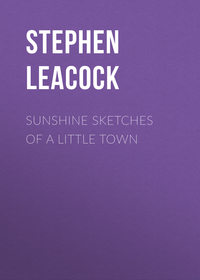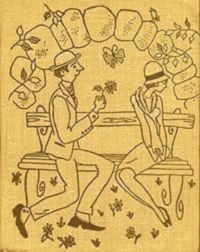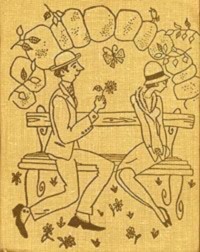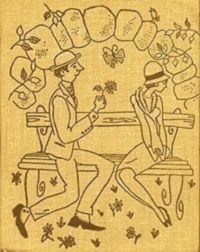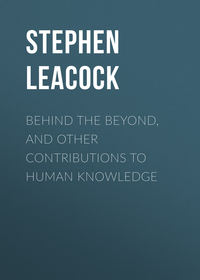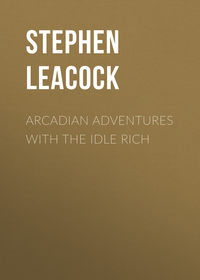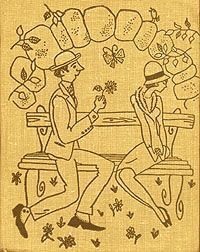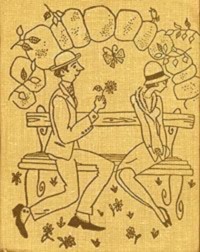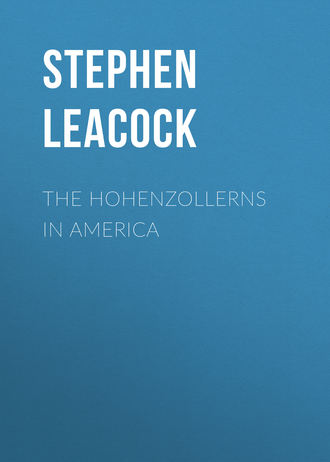 полная версия
полная версияThe Hohenzollerns in America
"And now," continued the speaker, "I command you, you dogs, to disperse quietly and go home. Move quickly, swine that you are, or we shall open fire upon you with machine guns."
With a last outburst of cheering the crowd broke and dispersed, like a vast theatre audience. On all sides were expressions of joy and satisfaction. "Excellent, wunderschoen!" "He calls us dogs! That's splendid. Swine! Did you hear him say 'Swine'? This is true German Government again at last."
Then just for a moment the burly figure reappeared on the balcony.
"A last word!" he called to the departing crowd. "I omitted to say that all but one of the leaders of the late government are already caught. As soon as we can lay our thumb on the Chief Executive rest assured that he will be hanged."
"Hurrah!" shouted Boobenstein, waving his hat in the air. Then in a whisper to me: "Let us go," he said, "while the going is still good."
We hastened as quickly and unobtrusively as we could through the dispersing multitude, turned into a side street, and on a sign from the count entered a small cabaret or drinking shop, newly named, as its sign showed, THE GLORY OF THE BRITISH COLONIES CAFE.
The count with a deep sigh of relief ordered wine.
"You recognized him, of course?" he said.
"Who?" I asked. "You mean the big working-man that spoke?
Who is he?"
"So you didn't recognize him?" said the count. "Well, well, but of course all the rest did. Workingman! It is Field Marshal Hindenburg. It means of course that the same old crowd are back again. That was Ludendorf standing below. I saw it all at once. Perhaps it is the only way. But as for me I shall not go back: I am too deeply compromised: it would be death."
Boobenstein remained for a time in deep thought, his fingers beating a tattoo on the little table. Then he spoke.
"Do you remember," he said, "the old times of long ago when you first knew me?"
"Very well, indeed," I answered. "You were one of the German waiters, or rather, one of the German officers disguised as waiters at McConkey's Restaurant in Toronto."
"I was," said the count. "I carried the beer on a little tray and opened oysters behind a screen. It was a wunderschoen life. Do you think, my good friend, you could get me that job again?"
"Boobenstein," I exclaimed, "I can get you reinstated at once. It will be some small return for your kindness to me in Germany."
"Good," said the count. "Let us sail at once for Canada."
"One thing, however," I said. "You may not know that since you left there are no longer beer waiters in Toronto because there is no beer. All is forbidden."
"Let me understand myself," said the count in astonishment.
"No beer!"
"None whatever."
"Wine, then?"
"Absolutely not. All drinking, except of water, is forbidden."
The count rose and stood erect. His figure seemed to regain all its old-time Prussian rigidity. He extended his hand.
"My friend," he said. "I bid you farewell."
"Where are you going to?" I asked.
"My choice is made," said Von Boobenstein. "There are worse things than death. I am about to surrender myself to the German authorities."
III.—Afternoon Tea with the Sultan
A Study of Reconstruction in Turkey
On the very day following the events related in the last chapter, I was surprised and delighted to receive a telegram which read "Come on to Constantinople and write US up too." From the signature I saw that the message was from my old friend Abdul Aziz the Sultan.
I had visited him—as of course my readers will instantly recollect—during the height of the war, and the circumstances of my departure had been such that I should have scarcely ventured to repeat my visit without this express invitation. But on receipt of it, I set out at once by rail for Constantinople.
I was delighted to find that under the new order of things in going from Berlin to Constantinople it was no longer necessary to travel through the barbarous and brutal populations of Germany, Austria and Hungary. The way now runs, though I believe the actual railroad is the same, through the Thuringian Republic, Czecho-Slovakia and Magyaria. It was a source of deep satisfaction to see the scowling and hostile countenances of Germans, Austrians and Hungarians replaced by the cheerful and honest faces of the Thuringians, the Czecho-Slovaks and the Magyarians. Moreover I was assured on all sides that if these faces are not perfectly satisfactory, they will be altered in any way required.
It was very pleasant, too, to find myself once again in the flagstoned halls of the Yildiz Kiosk, the Sultan's palace. My little friend Abdul Aziz rose at once from his cushioned divan under a lemon tree and came shuffling in his big slippers to meet me, a smile of welcome on his face. He seemed, to my surprise, radiant with happiness. The disasters attributed by the allied press to his unhappy country appeared to sit lightly on the little man.
"How is everything going in Turkey?" I asked as we sat down side by side on the cushions.
"Splendid," said Abdul. "I suppose you've heard that we're bankrupt?"
"Bankrupt!" I exclaimed.
"Yes," continued the Sultan, rubbing his hands together with positive enjoyment, "we can't pay a cent: isn't it great? Have some champagne?"
He clapped his hands together and a turbaned attendant appeared with wine on a tray which he served into long-necked glasses.
"I'd rather have tea," I said.
"No, no, don't take tea," he protested. "We've practically cut out afternoon tea here. It's part of our Turkish thrift movement. We're taking champagne instead. Tell me, have you a Thrift Movement like that, where you come from—Canada, I think it is, isn't it?"
"Yes," I answered, "we have one just like that."
"This war finance is glorious stuff, isn't it?" continued the Sultan. "How much do you think we owe?"
"I haven't an idea," I said.
"Wait a minute," said Abdul. He touched a bell and at the sound of it there came shuffling into the room my venerable old acquaintance Toomuch Koffi, the Royal Secretary. But to my surprise he no longer wore his patriarchal beard, his flowing robe and his girdle. He was clean shaven and close cropped and dressed in a short jacket like an American bell boy.
"You remember Toomuch, I think," said Abdul. "I've reconstructed him a little, as you see."
"The Peace of Allah be upon thine head," said Toomuch Koffi to the Sultan, commencing a deep salaam. "What wish sits behind thy forehead that thou shouldst ring the bell for this humble creature of clay to come into the sunlight of thy presence? Tell me, O Lord, if perchance—"
"Here, here," interrupted the Sultan impatiently, "cut all that stuff out, please. That ancient courtesy business won't do, not if this country is to reconstruct itself and come abreast of the great modern democracies. Say to me simply 'What's the trouble?"'
Toomuch bowed, and Abdul continued. "Look in your tablets and see how much our public debt amounts to in American dollars."
The secretary drew forth his tablets and bowed his head a moment in some perplexity over the figures that were scribbled on them. "Multiplication," I heard him murmur, "is an act of the grace of heaven; let me invoke a blessing on FIVE, the perfect number, whereby the Pound Turkish is distributed into the American dollar."
He remained for a few moments with his eyes turned, as if in supplication, towards the vaulted ceiling.
"Have you got it?" asked Abdul.
"Yes."
"And what do we owe, adding it all together?"
"Forty billion dollars," said Toomuch.
"Isn't that wonderful!" exclaimed Abdul, with delight radiating over his countenance. "Who would have thought that before the war! Forty billion dollars! Aren't we the financiers! Aren't we the bulwark of monetary power! Can you touch that in Canada?"
"No," I said, "we can't. We don't owe two billion yet."
"Oh, never mind, never mind," said the little man in a consoling tone. "You are only a young country yet. You'll do better later on. And in any case I am sure you are just as proud of your one billion as we are of our forty."
"Oh, yes," I said, "we certainly are."
"Come, come, that's something anyway. You're on the right track, and you must not be discouraged if you're not up to the Turkish standard yet. You must remember, as I told you before, that Turkey leads the world in all ideas of government and finance. Take the present situation. Here we are, bankrupt—pass me the champagne, Toomuch, and sit down with us—the very first nation of the lot. It's a great feather in the cap of our financiers. It gives us a splendid start for the new era of reconstruction that we are beginning on. As you perhaps have heard we are all hugely busy about it. You notice my books and papers, do you not?" the Sultan added very proudly, waving his hand towards a great pile of blue books, pamphlets and documents that were heaped upon the floor beside him.
"Why! I never knew before that you ever read anything!"
I exclaimed in amazement.
"Never did. But everything's changed now, isn't it, Toomuch? I sit and work here for hours every morning. It's become a delight to me. After all," said Abdul, lighting a big cigar and sticking up his feet on his pile of papers with an air of the deepest comfort, "what is there like work? So stimulating, so satisfying. I sit here working away, just like this, most of the day. There's nothing like it."
"What are you working at?" I asked.
"Reconstruction," said the little man, puffing a big cloud from his cigar, "reconstruction."
"What kind of reconstruction?"
"All kinds—financial, industrial, political, social. It's great stuff. By the way," he continued with great animation, "would you like to be my Minister of Labour? No? Well, I'm sorry. I half hoped you would. We're having no luck with them. The last one was thrown into the Bosphorous on Monday. Here's the report on it—no, that's the one on the shooting of the Minister of Religion—ah! here it is—Report on the Drowning of the Minister of Labour. Let me read you a bit of this: I call this one of the best reports, of its kind, that have come in."
"No, no," I said, "don't bother to read it. Just tell me who did it and why."
"Workingmen," said the Sultan, very cheerfully, "a delegation. They withheld their reasons."
"So you are having labour troubles here too?" I asked.
"Labour troubles!" exclaimed the little Sultan rolling up his eyes. "I should say so. The whole of Turkey is bubbling with labour unrest like the rosewater in a narghile. Look at your tablets, Toomuch, and tell me what new strikes there have been this morning."
The aged Secretary fumbled with his notes and began to murmur—"Truly will I try with the aid of Allah—"
"Now, now," said Abdul, warningly, "that won't do. Say simply 'Sure.' Now tell me."
The Secretary looked at a little list and read: "The strikes of to-day comprise—the wig-makers, the dog fanciers, the conjurers, the snake charmers, and the soothsayers."
"You hear that," said Abdul proudly. "That represents some of the most skilled labour in Turkey."
"I suppose it does," I said, "but tell me Abdul—what about the really necessary trades, the coal miners, the steel workers, the textile operatives, the farmers, and the railway people. Are they working?"
The little Sultan threw himself back on his cushions in a paroxysm of laughter, in which even his ancient Secretary was feign to join.
"My dear sir, my dear sir!" he laughed, "don't make me die of laughter. Working! those people working! Surely you don't think we are so behind hand in Turkey as all that! All those worker's stopped absolutely months ago. It is doubtful if they'll ever work again. There's a strong movement in Turkey to abolish all NECESSARY work altogether."
"But who then," I asked, "is working?"
"Look on the tablets, Toomuch, and see."
The aged Secretary bowed, turned over the leaves of his "tablets," which I now perceived on a closer view to be merely an American ten cent memorandum book. Then he read:
"The following, O all highest, still work—the beggars, the poets, the missionaries, the Salvation Army, and the instructors of the Youths of Light in the American Presbyterian College."
"But, dear me, Abdul," I exclaimed, "surely this situation is desperate? What can your nation subsist on in such a situation?"
"Pooh, pooh," said the Sultan. "The interest on our debt alone is two billion a year. Everybody in Turkey, great or small, holds bonds to some extent. At the worst they can all live fairly well on the interest. This is finance, is it not, Toomuch Koffi?"
"The very best and latest," said the aged man with a profound salaam.
"But what steps are you taking," I asked, "to remedy your labour troubles?"
"We are appointing commissions," said Abdul. "We appoint one for each new labour problem. How many yesterday, Toomuch?"
"Forty-three," answered the secretary.
"That's below our average, is it not?" said Abdul a little anxiously. "Try to keep it up to fifty if you can."
"And these commissions, what do they do?"
"They make Reports," said Abdul, beginning to yawn as if the continued brain exercise of conversation were fatiguing his intellect, "excellent reports. We have had some that are said to be perfect models of the very best Turkish." "And what do they recommend?"
"I don't know," said the Sultan. "We don't read them for that. We like to read them simply as Turkish."
"But what," I urged, "do you do with them? What steps do you take?"
"We send them all," replied the little man, puffing at his pipe and growing obviously drowsy as he spoke, "to Woodrow Wilson. He can deal with them. He is the great conciliator of the world. Let him have—how do you say it in English, it is a Turkish phrase—let him have his stomach full of conciliation."
Abdul dozed on his cushions for a moment. Then he reopened his eyes. "Is there anything else you want to know," he asked, "before I retire to the Inner Harem?"
"Just one thing," I said, "if you don't mind. How do you stand internationally? Are you coming into the New League of Nations?"
The Sultan shook his head.
"No," he said, "we're not coming in. We are starting a new league of our own."
"And who are in it?"
"Ourselves, and the Armenians—and let me see—the Irish, are they not, Toomuch—and the Bulgarians—are there any others, Toomuch?"
"There is talk," said the Secretary "of the Yugo-Hebrovians and the Scaroovians—"
"Who are they?" I asked.
"We don't know," said Abdul, testily. "They wrote to us. They seem all right. Haven't you got a lot of people in your league that you never heard of?"
"I see," I said, "and what is the scheme that your league is formed on?"
"Very simple," said the Sultan. "Each member of the league gives its WORD to all the other members. Then they all take an OATH together. Then they all sign it. That is absolutely binding."
He rolled back on his cushions in an evident state of boredom and weariness.
"But surely," I protested, "you don't think that a league of that sort can keep the peace?"
"Peace!" exclaimed Abdul waking into sudden astonishment. "Peace! I should think NOT! Our league is for WAR. Every member gives its word that at the first convenient opportunity it will knock the stuff out of any of the others that it can."
The little Sultan again subsided. Then he rose, with some difficulty, from his cushions.
"Toomuch," he said, "take our inquisitive friend out into the town; take him to the Bosphorous; take him to the island where the dogs are; take him anywhere." He paused to whisper a few instructions into the ear of the Secretary. "You understand," he said, "well, take him. As for me,"—he gave a great yawn as he shuffled away, "I am about to withdraw into my Inner Harem. Goodbye. I regret that I cannot invite you in."
"So do I," I said. "Goodbye."
IV.—Echoes of the War
1.—The Boy Who Came Back
The war is over. The soldiers are coming home. On all sides we are assured that the problem of the returned soldier is the gravest of our national concerns.
So I may say it without fear of contradiction,—since everybody else has seen it,—that, up to the present time, the returned soldier is a disappointment. He is not turning out as he ought. According to all the professors of psychology he was to come back bloodthirsty and brutalised, soaked in militarism and talking only of slaughter. In fact, a widespread movement had sprung up, warmly supported by the business men of the cities, to put him on the land. It was thought that central Nevada or northern Idaho would do nicely for him. At the same time an agitation had been started among the farmers, with the slogan "Back to the city," the idea being that farm life was so rough that it was not fair to ask the returned soldier to share it.
All these anticipations turn out to be quite groundless.
The first returned soldier of whom I had direct knowledge was my nephew Tom. When he came back, after two years in the trenches, we asked him to dine with us. "Now, remember," I said to my wife, "Tom will be a very different being from what he was when he went away. He left us as little more than a school boy, only in his first year at college; in fact, a mere child. You remember how he used to bore us with baseball talk and that sort of thing. And how shy he was! You recall his awful fear of Professor Razzler, who used to teach him mathematics. All that, of course, will be changed now. Tom will have come back a man. We must ask the old professor to meet him. It will amuse Tom to see him again. Just think of the things he must have seen! But we must be a little careful at dinner not to let him horrify the other people with brutal details of the war."
Tom came. I had expected him to arrive in uniform with his pocket full of bombs. Instead of this he wore ordinary evening dress with a dinner jacket. I realised as I helped him to take off his overcoat in the hall that he was very proud of his dinner jacket. He had never had one before. He said he wished the "boys" could see him in it. I asked him why he had put off his lieutenant's uniform so quickly. He explained that he was entitled not to wear it as soon as he had his discharge papers signed; some of the fellows, he said, kicked them off as soon as they left the ship, but the rule was, he told me, that you had to wear the thing till your papers were signed.
Then his eye caught a glimpse sideways of Professor Razzler standing on the hearth rug in the drawing room. "Say," he said, "is that the professor?" I could see that Tom was scared. All the signs of physical fear were written on his face. When I tried to lead him into the drawing room I realised that he was as shy as ever. Three of the women began talking to him all at once. Tom answered, yes or no,—with his eyes down. I liked the way he stood, though, so unconsciously erect and steady. The other men who came in afterwards, with easy greetings and noisy talk, somehow seemed loud-voiced and self-assertive.
Tom, to my surprise, refused a cocktail. It seems, as he explained, that he "got into the way of taking nothing over there." I noticed that my friend Quiller, who is a war correspondent, or, I should say, a war editorial writer, took three cocktails and talked all the more brilliantly for it through the opening courses of the dinner, about the story of the smashing of the Hindenburg line. He decided, after his second Burgundy, that it had been simply a case of sticking it out. I say "Burgundy" because we had substituted Burgundy, the sparkling kind, for champagne at our dinners as one of our little war economies.
Tom had nothing to say about the Hindenburg line. In fact, for the first half of the dinner he hardly spoke. I think he was worried about his left hand. There is a deep furrow across the back of it where a piece of shrapnel went through and there are two fingers that will hardly move at all. I could see that he was ashamed of its clumsiness and afraid that someone might notice it. So he kept silent. Professor Razzler did indeed ask him straight across the table what he thought about the final breaking of the Hindenburg line. But he asked it with that same fierce look from under his bushy eyebrows with which he used to ask Tom to define the path of a tangent, and Tom was rattled at once. He answered something about being afraid that he was not well posted, owing to there being so little chance over there to read the papers.
After that Professor Razzler and Mr. Quiller discussed for us, most energetically, the strategy of the Lorraine sector (Tom served there six months, but he never said so) and high explosives and the possibilities of aerial bombs. (Tom was "buried" by an aerial bomb but, of course, he didn't break in and mention it.)
But we did get him talking of the war at last, towards the end of the dinner; or rather, the girl sitting next to him did, and presently the rest of us found ourselves listening. The strange thing was that the girl was a mere slip of a thing, hardly as old as Tom himself. In fact, my wife was almost afraid she might be too young to ask to dinner: girls of that age, my wife tells me, have hardly sense enough to talk to men, and fail to interest them. This is a proposition which I think it better not to dispute.
But at any rate we presently realized that Tom was talking about his war experiences and the other talk about the table was gradually hushed into listening.
This, as nearly as I can set it down, is what he told us: That the French fellows picked up baseball in a way that is absolutely amazing; they were not much good, it seems, at the bat, at any rate not at first, but at running bases they were perfect marvels; some of the French made good pitchers, too; Tom knew a poilu who had lost his right arm who could pitch as good a ball with his left as any man on the American side; at the port where Tom first landed and where they trained for a month they had a dandy ball ground, a regular peach, a former parade ground of the French barracks. On being asked WHICH port it was, Tom said he couldn't remember; he thought it was either Boulogne or Bordeaux or Brest,—at any rate, it was one of those places on the English channel. The ball ground they had behind the trenches was not so good; it was too much cut up by long range shells. But the ball ground at the base hospital (where Tom was sent for his second wound) was an A1 ground. The French doctors, it appears, were perfectly rotten at baseball, not a bit like the soldiers. Tom wonders that they kept them. Tom says that baseball had been tried among the German prisoners, but they are perfect dubs. He doubts whether the Germans will ever be able to play ball. They lack the national spirit. On the other hand, Tom thinks that the English will play a great game when they really get into it. He had two weeks' leave in London and went to see the game that King George was at, and says that the King, if they will let him, will make the greatest rooter of the whole bunch.
Such was Tom's war talk.
It grieved me to note that as the men sat smoking their cigars and drinking liqueur whiskey (we have cut out port at our house till the final peace is signed) Tom seemed to have subsided into being only a boy again, a first-year college boy among his seniors. They spoke to him in quite a patronising way, and even asked him two or three direct questions about fighting in the trenches, and wounds and the dead men in No Man's Land and the other horrors that the civilian mind hankers to hear about. Perhaps they thought, from the boy's talk, that he had seen nothing. If so, they were mistaken. For about three minutes, not more, Tom gave them what was coming to them. He told them, for example, why he trained his "fellows" to drive the bayonet through the stomach and not through the head, that the bayonet driven through the face or skull sticks and,—but there is no need to recite it here. Any of the boys like Tom can tell it all to you, only they don't want to and don't care to.
They've got past it.
But I noticed that as the boy talked,—quietly and reluctantly enough,—the older men fell silent and looked into his face with the realisation that behind his simple talk and quiet manner lay an inward vision of grim and awful realities that no words could picture.
I think that they were glad when we joined the ladies again and when Tom talked of the amateur vaudeville show that his company had got up behind the trenches.


